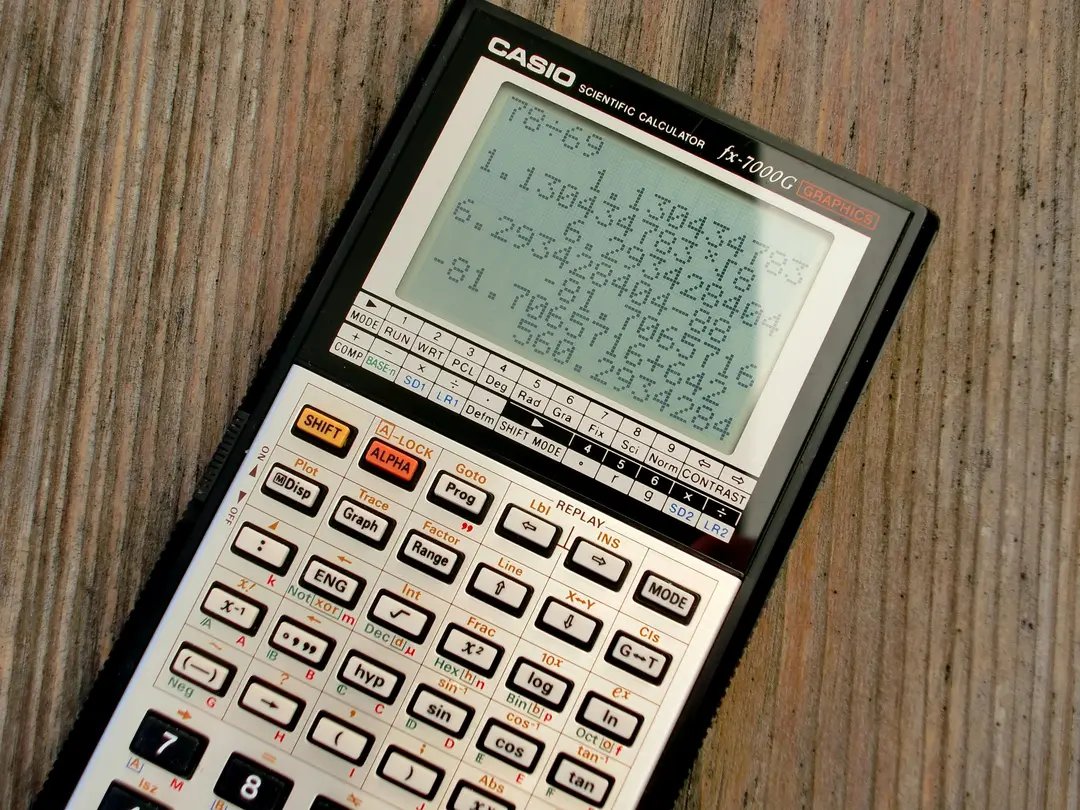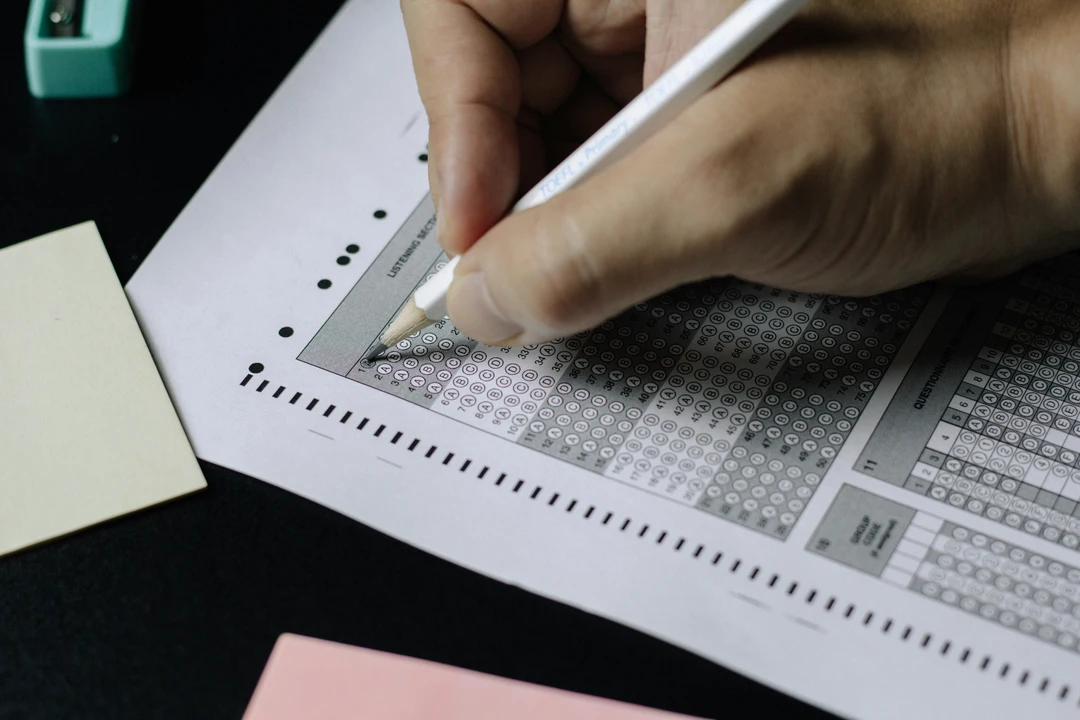How to Revise for GCSE Maths

Your GCSEs are likely the first really important school exams you’ll sit. Studying GCSEs sets you up for A-level study, and you may need to achieve certain GCSE grades in order to take certain A-level subjects. Your GCSE grades will also appear on your university applications, and can have a significant impact on the decisions of admissions officers.
GCSE Maths is particularly important. Admission into most UK sixth forms requires a passing grade in GCSE Maths and English, regardless of whether you plan on taking A-levels in those subjects. Maths is a key subject with wide-ranging applications, and a solid foundation in it will support you in whichever direction you wish to take for your higher education and career.
For GCSEs, preparation is key! Effective revision strategies can substantially impact your academic performance and final GCSE grades, so now is a great time to start thinking about which techniques work best for you.
GCSE Maths presents a lot of challenges; complex problem-solving and algebraic concepts are a common concern for students. However, with the right resources and revision strategies, you have every chance of hitting your target grades, all the while not letting exam stress get the better of you.
1. Understand the exam format
First and foremost, take some time to understand the format of your GCSE Maths exams.
Identify Your Exam Board
It’s crucial to be aware of which exam board administers your exams. Different exam boards cover different content and in varying formats. You can ask your Maths teacher which exam board you’re studying, or find out on your school’s website. Then, check for any unique features or variations in assessment criteria.
Additionally, you should familiarise yourself with the different types of exam paper, such as Foundations and Higher tier, understanding which you’ll be sitting, and the level of difficulty in each. This will ensure that you spend time studying the right content, at the right level.
Understand the Papers
Your Maths GCSE will consist of multiple exams, each covering different content and with a slightly different format. Again, the arrangement of this depends on your exam board.
Remember you’ll have to sit a mix of calculator and non-calculator papers. Prepare for both, and make sure you know which topics are assessed with which type of paper. You don’t want to waste time learning how to do a maths problem without a calculator, only to find it on the calculator paper…
Additionally, you should think about the different types of questions: multiple-choice, short answer and longer problem-solving questions. Identify which of these your exam board leans towards, but practise them all.
2. Identify topics for improvement
Your revision will be most effective if you prioritise the topics you struggle with the most. With this in mind, consider utilising self-assessment tools to evaluate your proficiency in different topics, and to identify any areas for improvement.
You can seek feedback from teachers or online platforms to gain personalised insights. It can be tempting to focus on the topics we already do well at, as this feels productive. However, you’ll benefit in the long run from dedicating time and attention to strengthening your weaker areas.
3. Create a personalised study schedule
It can be hugely beneficial to create a long-term study schedule to stay motivated and focused in the lead up to your Maths GCSE.
Assess your available time
The first step in putting together your study schedule is to evaluate the total amount of time you have for revision before the exam. Make sure to consider your other commitments and GCSE subjects, and identify how much time you’d like to spend studying each week.
Prioritise topics
Next, you’ll want to think about which topics you should prioritise. Consider the weighting of different topics within your curriculum and prioritise your revision based on importance.
Give higher priority to topics that carry more weight, and topics you’re less comfortable with. These are the areas you should revise most frequently and consistently in your revision schedule.
Create a weekly schedule
Once you have all this information, use a visual calendar or planner to create a weekly study schedule. Allocate study sessions evenly across the week to avoid cramming, and build flexibility into your schedule to accommodate unexpected events or adjustments.
Try to avoid being overly rigid, as this will make it harder to stay motivated if you fall behind, ultimately adding to your exam stress.
4. Use technology and interactive resources
There are plenty of online resources out there designed to make Maths more accessible and your GCSE period more manageable. In preparation for your Maths GCSE, explore relevant interactive modules on online platforms like Khan Academy and My Maths, and watch video tutorials covering concepts you’re struggling with.

Learn the Ins-and-Outs of Your Scientific Calculator
You’ll have been using a scientific calculator throughout your GCSE Maths course, and as exams get closer you’ll need to make sure that you’re comfortable and confident using it. In advance of your exams, you should familiarise yourself with the basic arithmetic functions on your scientific calculator, and understand how to use trigonometric functions (sine, cosine, tangent) and their counterparts for geometry and trigonometry problems.
It’s also an excellent idea to take some time to explore lesser-known calculator operations, including:
- Finding the product of prime factors for a number
- Creating a table of values for different points of a function
- Converting numbers to standard form
- Converting mixed numbers to improper fractions
- Converting time into minutes and hours
- Simplifying ratios
This will all contribute to helping you ace your exam when the time comes!
5. Practise past papers
The next stage of your GCSE Maths preparation should be to practise past exam papers. These can be found on your exam board’s website. Be sure to practise with a diverse set of past papers, covering a range of difficulty levels and question types. You can then analyse past papers to identify recurring patterns and understand common pitfalls. You may even try to “forecast” frequent topics.
When doing past papers, try to simulate exam conditions to refine your time management, and practise showing your working-out. This will get you used to the feeling of sitting your Maths GCSE, and hopefully reduce anxiety surrounding the exam setting.
6. Visualise complex concepts
When it comes to the content of your GCSE Maths course, it can be hard to wrap your head around difficult concepts. One approach to help with this is visualisation strategies.
Master mind-mapping techniques to visually organise and connect complex GCSE Maths concepts, and create detailed diagrams and visual representations for geometric and algebraic concepts. This will help you digest difficult concepts, and aids memorisation at the same time.
7. Memorise, memorise, memorise
GCSE Maths requires you to know lots of mathematical rules and principles by heart. This is a common challenge for GCSE students; it isn’t easy to memorise information across all of your subjects.
Try to develop mnemonics for remembering formulas and key principles in the Maths syllabus. For example:
FOIL (first, outer, inner, last) for expanding quadratics
and
BIDMAS (bracket, indices, division, multiplication, addition, subtraction) for order of operations
You could also try creating flashcards for quick and repetitive recall of essential concepts, and then working with classmates to test each other.
8. Learn collaboratively
Collaborative learning can be really beneficial in preparing for your exams. From mutual motivation to the sharing of knowledge, your classmates are a useful support network – so make use of them!
Explore forming structured study groups with your peers, assigning specific topics for collaborative learning sessions, or establishing teaching circles where each member takes turns explaining complex concepts to the group. You could also actively participate in online forums dedicated to GCSE Maths, engaging in discussions and problem-solving with a broader community.
Collaborative learning is central to an academic summer school. If you’d like to learn and develop with like-minded peers this summer, check out our Oxford summer courses.

9. Reduce stress
It’s important to not let exam stress get the better of you. When it comes to exam performance, keeping a level head will be more beneficial than losing sleep over your Maths revision.
If the stress of GCSEs is getting to you, consider:
- Incorporating mindfulness practices into your daily routine to manage stress effectively
- Strategically planning breaks during your study sessions to prevent burnout and maintain focus
- Maintaining a healthy lifestyle, including regular exercise and a balanced diet, to support your overall well-being during study periods
Most importantly, make sure to seek support if exam stress is becoming unmanageable.
10. Seek additional support
Finally, you’re strongly encouraged to seek additional support. Your teachers are there to support you during this challenging period, and there are many resources at your disposal to make life a little easier.
Try to schedule regular consultations with teachers for personalised guidance, and explore a variety of online resources dedicated to GCSE Maths. You could also consider the option of private tutoring, if relevant.
How to Ace Your Maths GCSE Exam

Now that we’ve covered Maths revision strategies, let’s talk exams. Those months of revision are vital for achieving the grades you want, but how you approach exam day can also be a deciding factor.
Here are five tips for acing your Maths GCSE exam:
1. Prepare early
Get a good night’s sleep and eat a nutritious breakfast. Your ability to focus during the exam is super important given how memory-based the test is. A mathematical problem can entirely change if you misread even one number, so make sure you’re well-rested and well-fed!
Before leaving for the exam, double-check you have all the necessary materials – a pen, pencil, eraser, ruler, protractor, a pair of compasses and a calculator (but not for the non-calculator exam). Aim to arrive at least 30 minutes before the start of the exam, giving yourself plenty of time to get into a relaxed mindset.
Most importantly, remind yourself of all the preparation you’ve done, and how capable you are.
2. Read the instructions carefully
When the exam starts, take the time to read through all the instructions before beginning the paper. Then, quickly scan the entire paper to gauge the level of difficulty, so you can plan your time accordingly.
It’s generally advised to not spend lots of time on questions you find difficult, but to start with ones you know you can do. This can be effective, using easier questions as a mental warm-up, so you’re in the best possible position to tackle harder questions when you get round to them.
3. Manage your time
Time management is crucial. A common mistake students make is running out of time during the exam because they spent too long on tough questions. Time can be tight, so it’s a good idea to clarify exactly where you should spend it.
Decide how much time you’ll spend on each section based on the marks available. That way, if you do run out of time, you’ll minimise the marks you miss.
4. Stay positive
In the exam, focus on what you know. If you encounter a challenging question, move on and return to it later. This will prevent you from wasting time agonising over one tough problem when you could be collecting marks elsewhere, and will stop you spiralling into a panic over your abilities mid-exam.
Remember to clearly show your workings out – even if you don’t end up with the correct answer, you can gain marks for using the right methods at different steps.
5. Review your answers
Finally, if you have time, review your answers once you’ve finished the paper and check for any mistakes. Once you’ve done this, you can submit with confidence! This way, you’ll minimise the anxiety which can set in after an exam, and be better able to focus on your next paper.
While GCSE Maths can be daunting, effective revision strategies and exam techniques can have a transformative impact on your performance. Managing your time in the run up to your GCSEs through timetabling, and focusing on weaker areas, is just as important as managing your time in the exam itself.
Throughout the GCSE preparation period, prioritise your mental and physical health. While important, GCSEs aren’t worth burnout and excessive worry. The strategies outlined above will help you approach GCSE Maths with confidence, so explore which revision techniques work best for you.
Ultimately, your intelligence isn’t limited to your test results, and you should try to use your GCSE period as an opportunity for personal empowerment, curiosity and solidarity with your peers!

By Lisa Muttonen
Lisa Muttonen worked as a Head of House at Oxford Scholastica Academy’s summer school in 2023. She recently completed a BA in Jurisprudence and French Law at the University of Oxford. Her interests lie in feminist legal theory, particularly in the international law context, and she hopes to pursue a career applying her skills and education to the international women’s aid effort. Lisa currently lives and works in Copenhagen, Denmark, with a view to undertaking a Master’s there in International Relations.
Recommended articles
Demystifying the UK University Application Process for Educators
The UCAS applications process for UK universities can appear daunting for students and teachers alike. With that said, educators play an important role in students’ success with their university applications. As such, it is paramount that educators understand the UK...
How to Secure Strong References for Your UCAS Applications
References are a crucial component of your UCAS application, offering a holistic view of your potential as an applicant. Your application will ask for references who can testify to your potential as a student and what you have to offer the university or college...
A Day in the Life of a History Student
It’s been over three years since I first sent my UCAS application off to Oxford University, meeting the early submission deadline by a slither and breathing a sigh of relief. Now, as a third-year History finalist on the cusp of exams, I can safely say that these...



